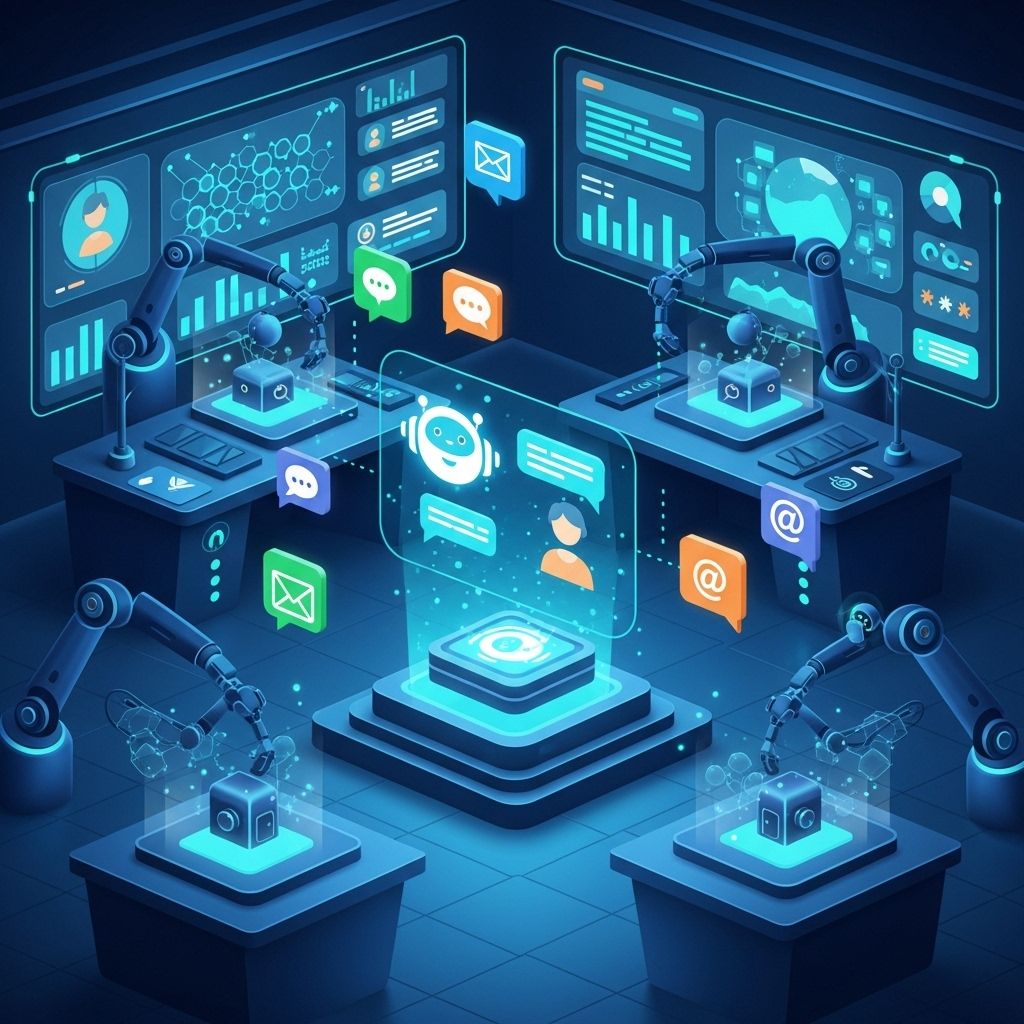In the age of digital transformation, customer support services have evolved significantly, with artificial intelligence (AI) taking the front seat. Businesses are increasingly leveraging AI technologies to enhance customer experience, streamline operations, and reduce costs. This article delves into the strategies for automating customer support with AI, exploring the tools, technologies, and methodologies that can revolutionize the way companies interact with their customers.
Table of Contents
Understanding AI in Customer Support
AI in customer support encompasses a variety of technologies, including chatbots, machine learning, and natural language processing. These tools can analyze customer interactions and provide real-time responses, ensuring that customer queries are efficiently addressed.
Key Technologies in AI Customer Support
Several AI technologies play a crucial role in automating customer support:
- Chatbots: Automated systems designed to engage with customers through text or voice, providing instant answers to common questions.
- Natural Language Processing (NLP): Enables machines to comprehend and interpret human language, facilitating more natural interactions.
- Machine Learning: Algorithms that learn from data, allowing systems to improve responses over time based on past interactions.
- Sentiment Analysis: Analyzes customer feedback to assess their feelings, helping businesses tailor responses appropriately.
The Benefits of AI-Driven Automation
Implementing AI in customer support comes with numerous benefits:
Cost Efficiency
By automating routine inquiries, businesses can significantly reduce the costs associated with hiring and training support staff. AI can handle thousands of interactions simultaneously, allowing for a more economical allocation of human resources.
Enhanced Customer Experience
AI technologies provide customers with quick responses, resulting in higher satisfaction rates. Moreover, they are available 24/7, ensuring assistance is always available, regardless of time zones.
Scalability
As businesses grow, so does the volume of customer inquiries. AI systems can handle increased workloads without the need for additional human resources, providing a scalable solution for customer support.
How to Implement AI in Customer Support
To effectively implement AI in customer support, businesses should follow a structured approach:
1. Identify Customer Needs
Understanding the specific needs of customers is essential for a successful implementation. This could involve:
- Conducting surveys to gather feedback on customer pain points.
- Analyzing support tickets to identify recurring issues.
- Reviewing chat logs to understand common queries.
2. Choose the Right Tools
Selecting AI tools that align with business objectives is critical. Here are some popular AI customer support platforms:
| Tool | Description | Best For |
|---|---|---|
| Zendesk | Offers AI-powered chatbots and automation features. | Medium to large enterprises |
| Intercom | Provides real-time chat support and automated responses. | Startups and growing businesses |
| LivePerson | Facilitates AI-driven messaging and voice solutions. | Brands focused on conversational experiences |
3. Train the AI
Training the AI system involves feeding it with a plethora of data, including:
- Previous customer interactions
- Commonly asked questions and their answers
- Appropriate actions based on customer sentiment
Utilizing machine learning allows the AI to improve continuously, ensuring better responses over time.
4. Monitor and Optimize Performance
Once the AI system is live, it’s imperative to monitor its performance regularly. Metrics to consider include:
- Response time
- Customer satisfaction ratings
- Resolution rates
Collecting this data can help identify areas for improvement and optimize the system accordingly.
Challenges in AI Implementation
While the benefits of AI-driven customer support are substantial, there are challenges that businesses may face:
1. Integration with Existing Systems
Incorporating AI tools into existing customer support platforms may require technical expertise and resources. It’s essential to ensure compatibility and smooth transitions.
2. Customer Acceptance
Some customers may prefer human interaction over AI, leading to potential resistance. Offering a hybrid approach—where customers can choose between AI and human agents—can mitigate this issue.
3. Data Privacy and Security
With increasing concerns around data privacy, businesses must ensure that their AI systems comply with regulations and safeguard customer information.
Future of AI in Customer Support
The future of customer support is leaning heavily towards automation and AI technology. As advancements in AI continue, we can expect:
- Greater personalization in responses based on customer data.
- More sophisticated chatbots capable of handling complex queries.
- Integration of AI with voice technologies, enhancing user experience.
Conclusion
Automating customer support with AI is not just a trend; it’s a strategic necessity in today’s competitive landscape. By understanding the technology, implementing it effectively, and continuously optimizing its performance, businesses can significantly enhance their customer support services. The journey may come with challenges, but the rewards—improved customer satisfaction, operational efficiency, and cost savings—are worth the effort.
FAQ
What is AI customer support automation?
AI customer support automation uses artificial intelligence technologies to handle customer inquiries and provide assistance without human intervention.
How can AI improve customer support?
AI can improve customer support by providing 24/7 availability, faster response times, personalized interactions, and reducing the workload on human agents.
What tools are available for automating customer support with AI?
Some popular tools include chatbots like Zendesk, Intercom, and Drift, as well as AI platforms like IBM Watson and Google Dialogflow.
Can AI chatbots understand complex customer queries?
Yes, advanced AI chatbots are equipped with natural language processing capabilities that enable them to understand and respond to complex customer queries.
What are the benefits of using AI in customer support?
Benefits include increased efficiency, lower operational costs, enhanced customer satisfaction, and the ability to analyze customer interactions for continuous improvement.
How do I integrate AI into my existing customer support system?
Integration can be achieved by selecting an AI tool that fits your needs, using APIs to connect it to your support system, and training the AI with relevant data.









